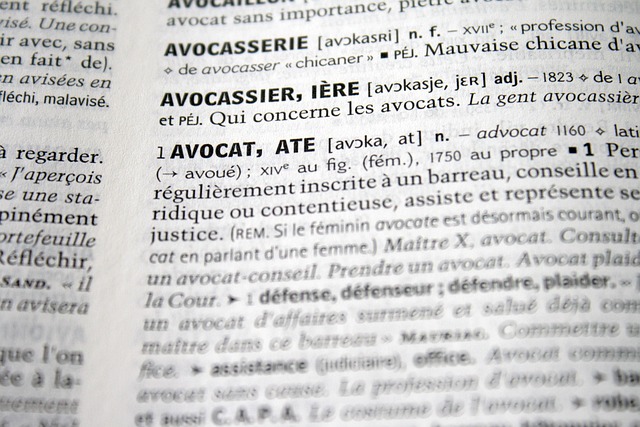Class action lawsuits, where multiple plaintiffs unite against a common defendant, offer efficient and effective legal representation for significant wrongdoings. Specialized knowledge is vital to navigate complex legal landscapes, ultimately aiming for substantial compensation or practice changes. Legal Representation for Class Action Lawsuits plays a crucial role in these scenarios, especially in commercial disputes, white-collar crimes, and high-stakes cases. Understanding the distinctions between individual and collective action is key, with class actions beneficial for complex issues affecting many. Attorneys provide indispensable legal expertise, strategize, gather evidence, and negotiate on behalf of clients to secure justice through settlement or trial.
In today’s complex legal landscape, understanding various litigation types is crucial for effective legal representation. This comprehensive guide explores key aspects of class action lawsuits, offering a deep dive into their unique dynamics and strategic considerations. Additionally, we delve into strategies for complex commercial disputes, the role of attorneys in representing plaintiffs, and the distinctions between individual and collective claims. For those seeking legal representation for class action lawsuits, this article provides essential insights and practical knowledge.
- Understanding Class Action Lawsuits: A Comprehensive Overview
- Legal Strategies for Complex Commercial Disputes
- Individual vs. Collective Claims: When to File Together
- The Role of Attorneys in Representing Plaintiffs
- Common Types of Litigation and Their Unique Challenges
Understanding Class Action Lawsuits: A Comprehensive Overview

Class action lawsuits are a powerful legal tool where a group of individuals, known as a class, joins together to pursue a common legal claim against a defendant. This collective approach allows for more efficient and effective legal representation for his clients who might otherwise face significant challenges in individual cases. The strength lies in numbers, as these suits can address wrongdoings that affect a large number of people, ensuring justice for all.
Understanding the process is crucial. It involves several steps, from initial filing to certification, where a judge determines if the case meets the necessary criteria. Legal representation for class action lawsuits plays a pivotal role throughout this journey, guiding clients through all stages of the investigative and enforcement process. Unlike individual cases, these suits require specialized knowledge to navigate complex legal landscapes, ultimately aiming to secure substantial compensation or changes in practices that benefit the entire class.
Legal Strategies for Complex Commercial Disputes

In navigating complex commercial disputes, a robust legal strategy is paramount. These high-stakes scenarios often involve intricate financial matters, requiring specialized knowledge to unravel. One prominent type of lawsuit that demands meticulous handling is the class action suit. This collective litigation approach empowers a significant number of plaintiffs to join forces against a common defendant, addressing widespread harm. The strategic use of legal representation for class action lawsuits can prove pivotal in securing substantial remedies and ensuring justice for all affected parties.
For businesses, whether large corporations or smaller enterprises, facing white-collar and economic crimes allegations, the right counsel is indispensable. Skilled attorneys can navigate these intricate cases, which often involve sophisticated financial schemes and complex regulatory environments. By providing tailored legal representation to both corporate and individual clients, they safeguard interests, mitigate risks, and champion for fair outcomes in the face of adversity.
Individual vs. Collective Claims: When to File Together

When considering whether to file individual or collective claims, understanding the differences between them is crucial. Individual lawsuits are typically brought by a single person seeking damages for their unique circumstances and experiences. This path is often chosen when the allegations involve personal harm, discrimination, or contractual breaches that directly impact one individual. On the other hand, collective claims, commonly known as class action lawsuits, aggregate multiple plaintiffs with shared interests and similar grievances against a common defendant.
Filing as part of a class action can be strategic for several reasons. It allows individuals who might have had limited resources or standing to band together, leveraging collective legal representation for class action lawsuits. This is especially beneficial when dealing with complex issues like white-collar crimes that affect vast numbers of people across the country. Moreover, successful class actions can yield significant philanthropic and political consequences, ensuring that wrongdoers are held accountable and providing a voice to those who might otherwise remain unheard in smaller individual cases.
The Role of Attorneys in Representing Plaintiffs

Attorneys play a pivotal role in representing plaintiffs, especially in complex cases like class action lawsuits. They are the legal advocates who guide and protect their clients’ rights throughout the litigation process. These lawyers possess extensive knowledge of laws, regulations, and legal precedents relevant to their client’s claims.
In the context of class action lawsuits, attorneys work diligently to ensure a complete dismissal of all charges against the respective business. They strategize, gather evidence, and negotiate on behalf of their clients, aiming to achieve the best possible outcome. Their expertise in crafting legal arguments, interpreting case law, and presenting evidence before judges and juries is invaluable. For his clients, an attorney’s primary goal is to secure justice, whether through settlement negotiations or a successful trial.
Common Types of Litigation and Their Unique Challenges

In the realm of litigation, several common types present unique challenges that require distinct strategies from legal professionals. One prominent category is class action lawsuits, which involve a large group of individuals with similar claims against a defendant. These complex cases demand specialized legal representation for class actions to navigate the intricate procedures and ensure fair outcomes for all plaintiffs. The sheer volume of claimants and the potential for significant damages make effective communication and consistent application of legal principles crucial.
Another notable type is white-collar defense, focusing on criminal or civil charges against individuals or entities for fraud, embezzlement, or other financial crimes. These high-stakes cases often involve intricate legal arguments and require an in-depth understanding of the underlying business practices. Additionally, jury trials are a significant aspect of litigation, where the fate of a case rests on the decision of laypeople. Effective strategies for both presenting evidence to juries and challenging opposing arguments are vital to achieving favorable outcomes in these highly publicized high-stakes cases.
In navigating complex legal landscapes, understanding various litigation types is paramount. From class action lawsuits offering collective power to individual claims focusing on personal justice, each approach presents unique challenges and benefits. Attorneys play a pivotal role in guiding plaintiffs through these complexities, ensuring the best possible outcomes. By employing strategic legal representations tailored to specific cases, whether it’s managing complex commercial disputes or facilitating class actions, legal professionals empower individuals and organizations alike to seek redress effectively.






